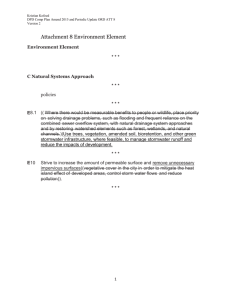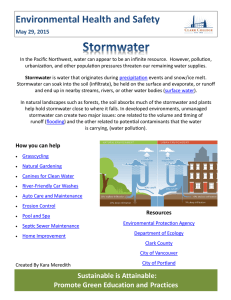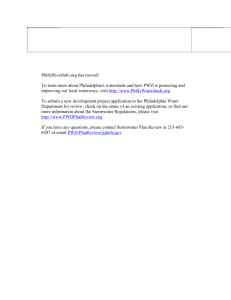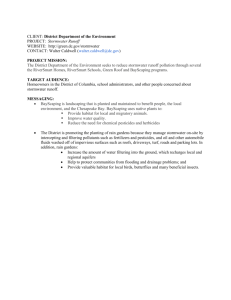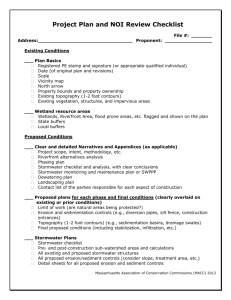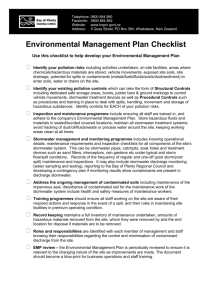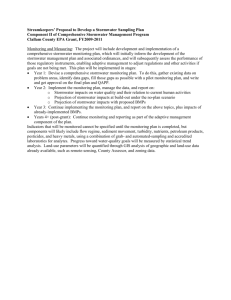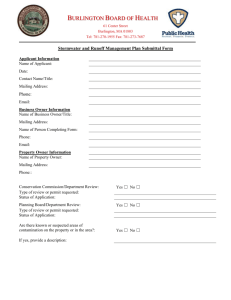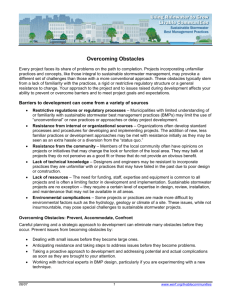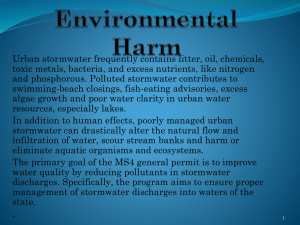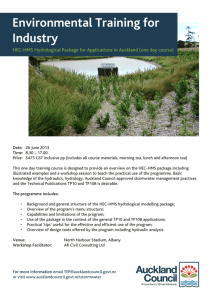HYDRAULIC ENGINEERING - The University of Auckland
advertisement
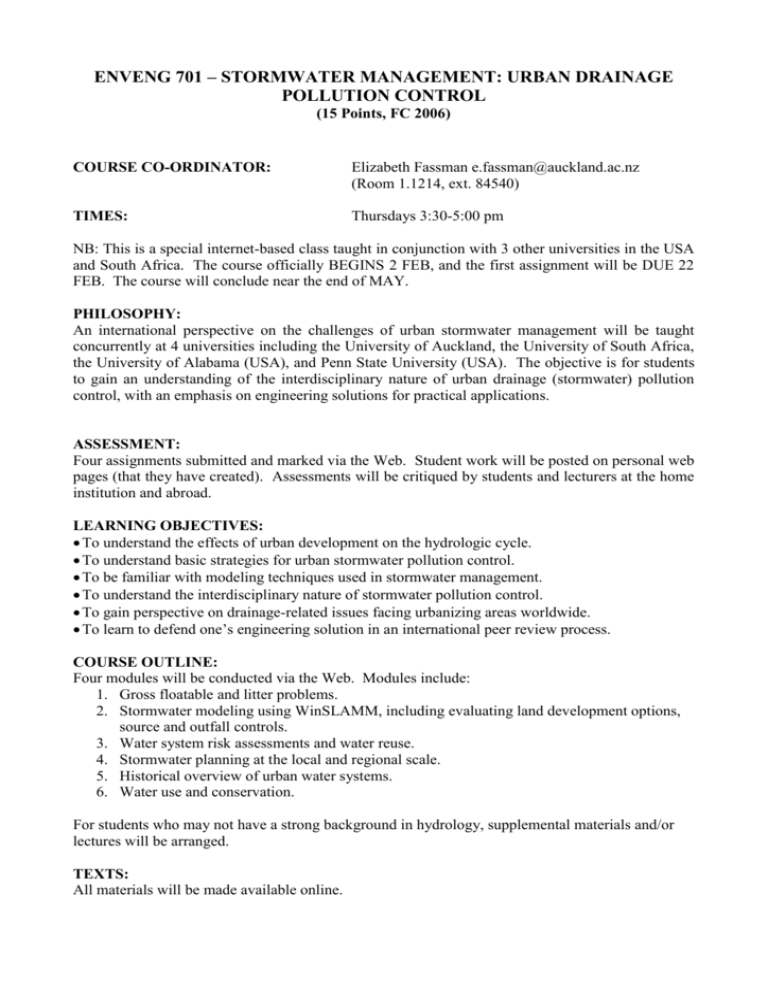
ENVENG 701 – STORMWATER MANAGEMENT: URBAN DRAINAGE POLLUTION CONTROL (15 Points, FC 2006) COURSE CO-ORDINATOR: Elizabeth Fassman e.fassman@auckland.ac.nz (Room 1.1214, ext. 84540) TIMES: Thursdays 3:30-5:00 pm NB: This is a special internet-based class taught in conjunction with 3 other universities in the USA and South Africa. The course officially BEGINS 2 FEB, and the first assignment will be DUE 22 FEB. The course will conclude near the end of MAY. PHILOSOPHY: An international perspective on the challenges of urban stormwater management will be taught concurrently at 4 universities including the University of Auckland, the University of South Africa, the University of Alabama (USA), and Penn State University (USA). The objective is for students to gain an understanding of the interdisciplinary nature of urban drainage (stormwater) pollution control, with an emphasis on engineering solutions for practical applications. ASSESSMENT: Four assignments submitted and marked via the Web. Student work will be posted on personal web pages (that they have created). Assessments will be critiqued by students and lecturers at the home institution and abroad. LEARNING OBJECTIVES: To understand the effects of urban development on the hydrologic cycle. To understand basic strategies for urban stormwater pollution control. To be familiar with modeling techniques used in stormwater management. To understand the interdisciplinary nature of stormwater pollution control. To gain perspective on drainage-related issues facing urbanizing areas worldwide. To learn to defend one’s engineering solution in an international peer review process. COURSE OUTLINE: Four modules will be conducted via the Web. Modules include: 1. Gross floatable and litter problems. 2. Stormwater modeling using WinSLAMM, including evaluating land development options, source and outfall controls. 3. Water system risk assessments and water reuse. 4. Stormwater planning at the local and regional scale. 5. Historical overview of urban water systems. 6. Water use and conservation. For students who may not have a strong background in hydrology, supplemental materials and/or lectures will be arranged. TEXTS: All materials will be made available online.

